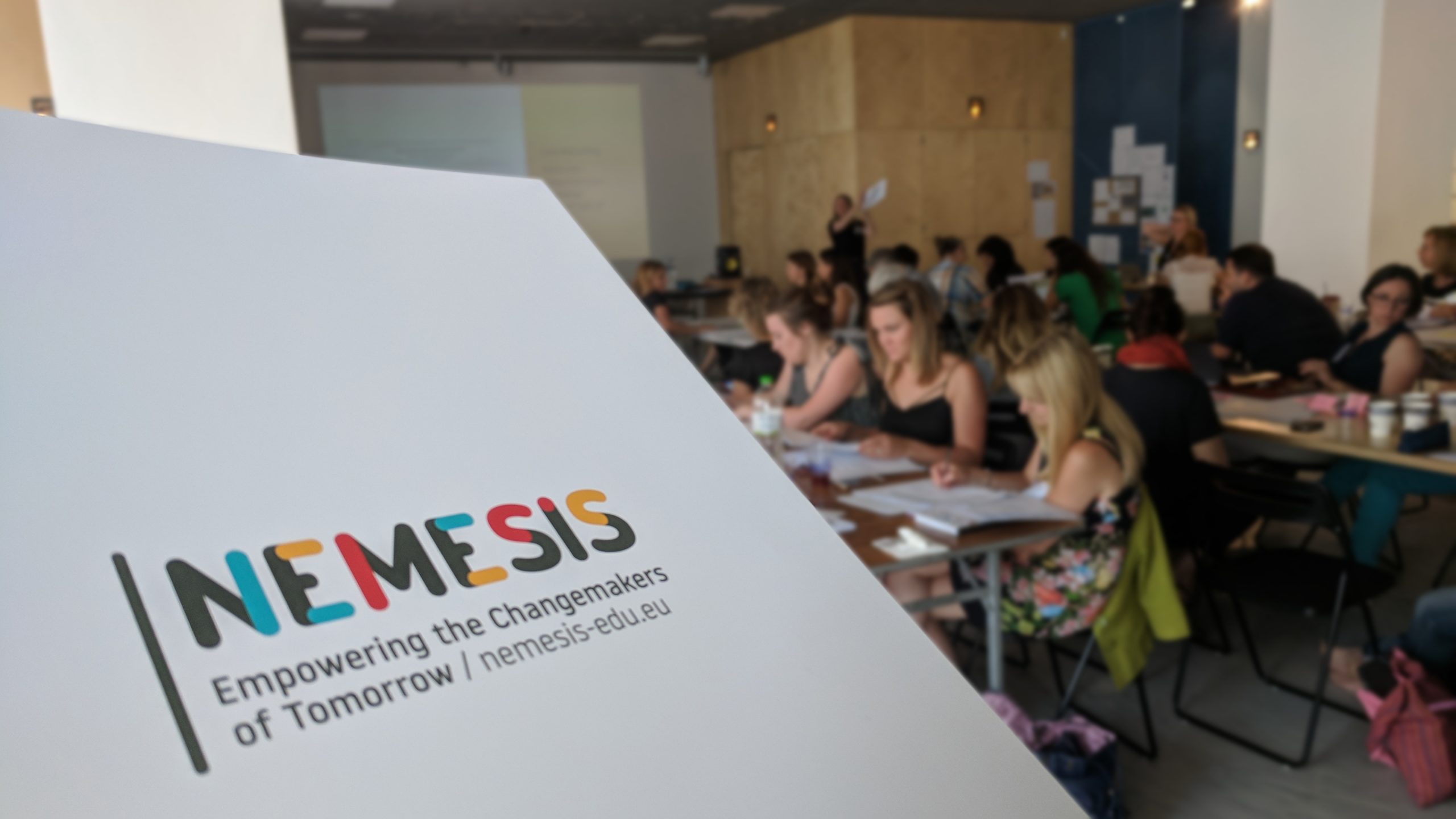We had the pleasure of attending the last last Social Innovation Community meeting in Sevilla. Many conversations revolved around how to foster a culture of social innovation, how to embed its practice in society. In NEMESIS project we believe there is an obvious answer to that: education.
If you want to change the future, empower the students so they’ll be able to effect change. Help them develop the skills and competences that will allow them to achieve their vision. Hence our project motto: bringing together education and social innovation to empower the changemakers of tomorrow.
Contrary to the current fashion, we don’t focus on universities but on primary and secondary education (ages 6-18). Because, paraphrasing Donna Haraway, to imagine change one must feel that change is possible, and school is where everything begins.
Our approach is different from entrepreneurship education, which is mainly focused on (self)employability. Instead, we emphasize the collective ability to identify and tackle social problems, fostering competences such as empathy and social resilience. Actually, we label what we do as ‘social innovation education’, and define it as a “collaborative and collective learning process for the empowerment and socio-political activation of students – to drive social change no matter their professional careers”.
The type of projects being developed by participating schools range from an integral project to improve the schoolyard (including an ecological brigade, a community garden and a playground area with recycled materials), to a second-hand market in a deprived area; from an application allowing blind people to access info about city monuments, to renovating a community house for children with social and behavioural difficulties. Such a variety demonstrate the wide perspectives of social innovation and their accomodation in education.
All these projects emerged in shared and open discussion between teachers, students, parents, social innovation practitioners, and other members of the community – including, in some cases, members of the municipality. The diversity of the projects developed is self-evident in the type of social innovation practitioners involved: business owners, NGOs, civic society activists, members of community gardens…
The generative discussion meetings are called co-creation labs, and they are the fundamental piece of our proposed educational model, since it’s there where the magic happens: where silos are broken and different actors come together to share their views, using participatory methodologies to ensure all of them have the same opportunity to participate, and projects are not directed by teachers or parents instead of students.
Our ultimate goal? That these collaborative and social innovation approaches become more widely valued and adopted in schools, slowly permeating their culture, making its way into curricula and, as a consequence, strengthening connections between classrooms and the local environment. There are challenges to overcome – from the different degrees of school autonomy across Europe to the difficulties of changing organizational models inside schools. However, we expect the project to push those boundaries and be a stepping stone in the introduction of social innovation education in schools.
The actual Haraway sentence referenced earlier reads as follows: “even to imagine destabilization, one must be formed at a social moment when change is possible, when people are producing different meanings in many other areas of life” (from her 1989 book Primate visions: Gender, race and nature in the world of modern science). As social innovation is gaining momentum across sectors and political actors, it’s the perfect timing for introducing its philosophy, values and skills to the younger generation; for they are the change to come.
—
NEMESIS is a Horizon 2020 project bringing together education and social innovation to empower the changemakers of tomorrow. The project started in 2018 and it will continue until 2021. At the moment there are ten schools involved from five European countries and a second pilot will start on September 2019, for which we invite more schools to join. Social innovation practitioners are also encouraged to join and become part of NEMESIS database of partners interested in collaborating with schools.
This article first appeared in the Social Innovation Community website

